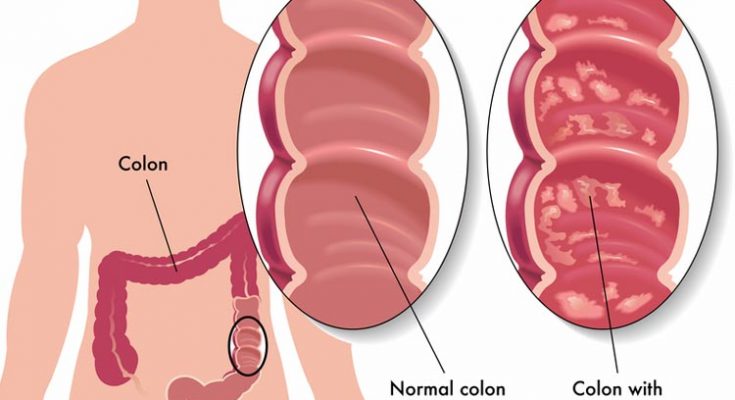Ulcerative colitis (UC) is a type of inflammatory bowel disease (IBD). Diagnosis is generally made by history, visualization of the intestine through sigmoidscopy or colonoscopy, and examination of tissue biopsies by a pathologist. In UC only the lining of the colon (the mucosa) is inflamed and the lesions are symmetric in the affected area. Clinical manifestations of IBD are diarrhea (sometimes bloody), malaise, cramping, abdominal pain and sporadic fever.
Treatment for UC consists of aminosalicylates (given orally or rectally) such as sulfasalazine and mesalamine, corticosteroids, and immune modifiers such as cyclosporine and azathioprine. Occasionally nicotine patches or enemas are used in the treatment of UC. IBD resistant to drug treatment may require surgery.
Maintenance of proper nutrition is important in the medical treatment of UC because poor absorption in the presence of a decreased appetite may lead to depletion of nutrients. Although people with UC may require chronic drug treatment, they generally lead a normal, productive life.
Chronic ulcerative colitis increases the risk for colon cancer.
Annual colonoscopy is often recommended as a screening mechanism depending on other risk factors, particularly any evidence of precancerous tissue. There is a currently great research effort to define chemopreventive agents for colon cancer as well as many other types of cancer. Chemoprevention is the attempt to use natural and synthetic compounds to interfere at the early stages of cancer, before invasive disease begins. (See colon cancer below.)

